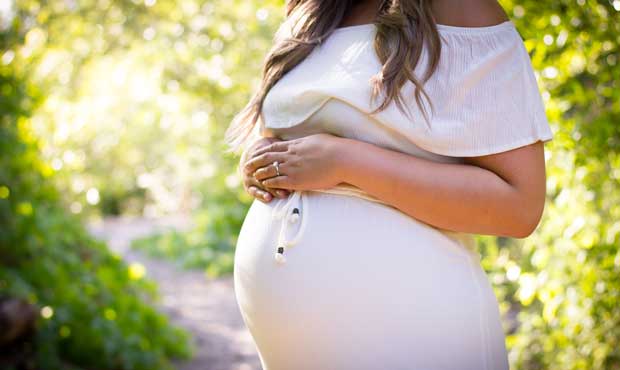The secret science of pregnancy revealed in new book, ‘Like a Mother’
Jun 12, 2018, 4:50 PM | Updated: 5:10 pm
In 2015, after having her first baby, Seattle food writer Angela Garbes wrote an article about the magical powers of breast milk, all rooted in science. The piece went viral and is still the most clicked on article in The Stranger’s history (you may have heard my interview with her here on KIRO Radio). That article led to Garbes’ new book, “Like a Mother, A Feminist Journey through the Science and Culture of Pregnancy.”
Garbes had a lot of questions about pregnancy that were not being answered in existing pregnancy books. And through her research on breast milk, she discovered a hidden wealth of information.
“A lot of that stuff exists in academic journals, in laboratories, it’s just not out on the streets,” Garbes said. “It’s not reaching the people who are pregnant and giving birth. We’re the people who need that information the most.”
She also felt that the existing books and articles on pregnancy put a lot of focus on what they think is right and wrong. What make someone a good mom or a bad mom.
“What if we just give people information about what’s going on in their bodies? For me, personally, I needed to know what is a placenta? Am I really growing a whole other organ and what does it do? That seems to me way more important than whether I’m having a glass of wine or whether or not my diapers are organic.”
“Like a Mother” is full of fascinating information, like why it became standard for women to give birth on their backs at a hospital.
“It’s because Louis XIV was sort of a voyeur and he wanted to watch his children being born,” Gerbes said. “He did it from behind a curtain, but he had people build a table where the woman would lay on her back and she’d put her feet up because it gave him the best view. So because the king of France did it, people in France started doing it and it kind of spread throughout Europe. Then, because America was looking to Europe for advancements or whatever, then everyone started doing that. For centuries, women gave birth squatting in fields, basically. You know, gravity is your friend when you’re in labor and you’re giving birth. A baby needs to come down and out. If you’re lying flat on your back, it’s like trying to push a baby out a hole and up a hill.”
The day before I interviewed Garbes she was on the nationally syndicated radio show “Fresh Air” with Terry Gross. Every time she came back from a break, Gross repeatedly issued a warning to listeners about the content of the interview. That is, until Garbes spoke up and confronted her about it.
“She said it at the very beginning and it wasn’t that strange. She just said, you know, heads up, we’re going to be talking about childbirth, we’re going to be talking very frankly about the human body, so FYI. And that seemed fine,” Garbes said. “And then I noticed that she did it again and again. Then she said, ‘If you have young children around, you might want to think about that.’ That’s actually what triggered me, thinking, that’s weird. I said, you know, I think it’s adults who are uncomfortable with this. Children are so much closer to this. Children are learning about their bodies at a young age and that’s the time to talk about it.”
“The other things is, this is where we all come from,” she said. “Someone got pregnant, someone gave birth to you. Why wouldn’t we talk about that from a young age? We don’t need to protect children from this. You know, on NPR they routinely air stories about war, about crime, about the president and porn stars and they don’t issue any warnings about that and children are around listening to that. But we’re worried about our biological origins? It didn’t sit right with me.”
Like a Mother
One of the things Garbes talks about is how dated some of the science on women’s health is, how little money and research has gone into women’s health, as opposed to men’s. Having frank conversations about pregnancy and women’s bodies helps us move in the other direction.
Her book, “Like a Mother,” is out now. I’ll leave you with one more maternal fact that I found to be particularly beautiful.
“Microchimerism sounds like the stuff of science fiction. It’s basically that the cells of another person exist in your body,” Garbes said. “What we’ve learned, and we’re still learning a lot because again we haven’t spent a lot of time studying this. We haven’t let people study women’s bodies in this way. Moms and fetuses exchange cells during pregnancy. They have found male DNA in the brains of women decades after they’ve given birth. A lot of people will say, ‘I felt different, I felt changed after I became a mother. Not just on a superficial level. I feel like, in some way, on a cellular level I changed.’ Because you did. And it’s a powerful thought.”
Angela has three upcoming book readings for “Like a Mother” in Seattle, click here for details.














